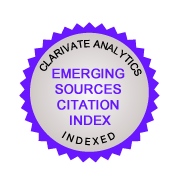How Do We Know What is Happening in Whatsapp: A Case Study Investigating Pre-Service Teachers’ Online Activity
DOI:
https://doi.org/10.32890/mjli2018.15.2.8Keywords:
WhatsApp, online environment, interactions, mobile instant messagingAbstract
Purpose - This study addresses the issue of investigating on how lecturers used WhatsApp in educational context and what are the pre-service teachers’ views when WhatsApp is used in teaching and learning activities.Methodology - A qualitative case study was conducted in this study. Two lecturers were interviewed individually to investigate the teaching approach integrated with the use of WhatsApp. Also, 12 pre-service teachers in two focus groups were interviewed to examine their views of using WhatsApp in completing their tasks.
Findings - The lecturers employed blended learning approach and were not keen to entirely conduct their lessons in the online learning environment. The focus group interviews were conducted to bring the data together to generate emerging themes related to positive and negative views of pre-service teachers when they were engaged on WhatsApp for learning activities. The positive themes were related to bite size learning, seamless learning, 21st century learning, WhatsApp as a platform to support learning and as an extended interaction space.
Practical Implications - The study may influence the use of Information Communication and Technology (ICT) tools in education. It also contributes to new ideas and knowledge on how teachers and learners can conceptualize and use ICT. There is a strong case to argue for instructors to be actively involved in interactions to guide students to develop knowledge and ideas.




























